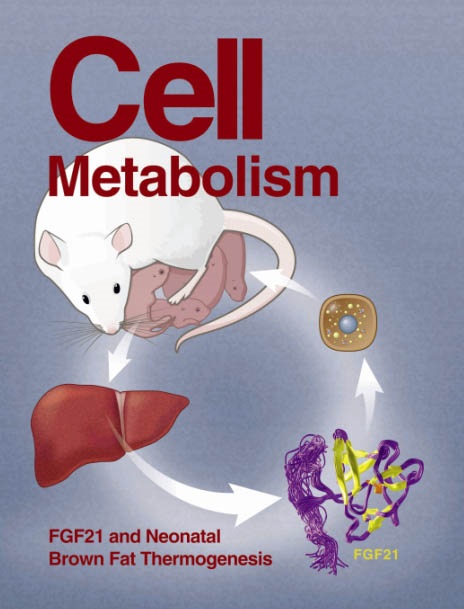甜的会变酸吗?阿斯巴甜如何在临床前模型中加重动脉粥样硬化
IF 30.9
1区 生物学
Q1 CELL BIOLOGY
引用次数: 0
摘要
阿斯巴甜是一种低热量甜味剂(LCS),通过广泛的临床前和临床试验证明是安全的。然而,流行病学数据将阿斯巴甜和其他低脂糖与更高的心血管风险联系起来。在本期《细胞代谢》中,Wu等人1在高脂血症小鼠模型中表明,阿斯巴甜通过迷走神经介导的胰岛素依赖机制加速动脉粥样硬化。本文章由计算机程序翻译,如有差异,请以英文原文为准。
Does sweet turn sour? How aspartame aggravates atherosclerosis in a preclinical model
Aspartame, a low-calorie sweetener (LCS), was shown to be safe through extensive pre-clinical and clinical tests. However, epidemiological data link aspartame and other LCSs to higher cardiovascular risk. In this issue of Cell Metabolism, Wu et al.1 show that aspartame accelerates atherosclerosis via a vagal-mediated insulin-dependent mechanism in a hyperlipidemic mouse model.
求助全文
通过发布文献求助,成功后即可免费获取论文全文。
去求助
来源期刊

Cell metabolism
生物-内分泌学与代谢
CiteScore
48.60
自引率
1.40%
发文量
173
审稿时长
2.5 months
期刊介绍:
Cell Metabolism is a top research journal established in 2005 that focuses on publishing original and impactful papers in the field of metabolic research.It covers a wide range of topics including diabetes, obesity, cardiovascular biology, aging and stress responses, circadian biology, and many others.
Cell Metabolism aims to contribute to the advancement of metabolic research by providing a platform for the publication and dissemination of high-quality research and thought-provoking articles.
 求助内容:
求助内容: 应助结果提醒方式:
应助结果提醒方式:


